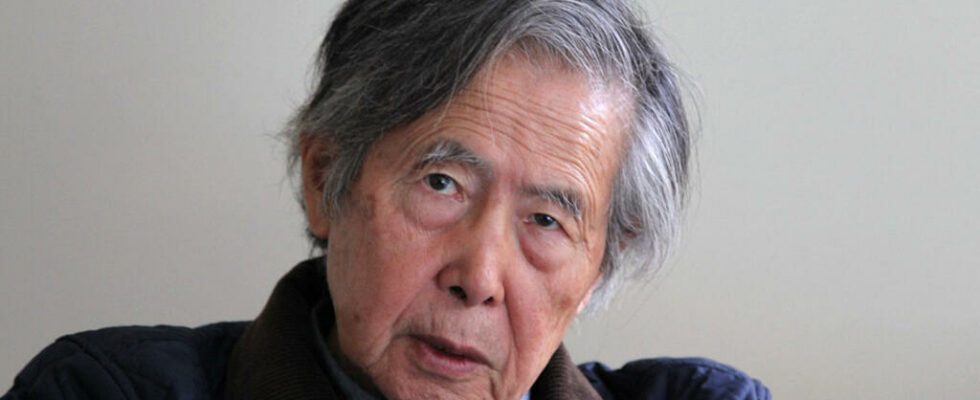Alberto Fujimori died at the age of 86. President of Peru from 1990 to 2000, he was remembered by some Peruvians as the one who put an end to the Maoist Shining Path guerrillas. A repressive policy marked by several massacres, which earned him a 25-year prison sentence for crimes against humanity. At the end of 2023, he was released from prison without having served his entire sentence. He had been suffering from health problems for several years.
4 mins
Former Peruvian President Alberto Fujimori (1990-2000) died Tuesday at the age of 86 in Lima, his family announced on the X network. After a long battle with cancer, our father, Alberto Fujimori, has just gone to meet the Lord. We ask those who loved him to accompany us with a prayer for the eternal rest of his soul. Thank you for everything, Dad! ” announced his children Keiko, Hiro, Sachie and Kenji Fujimori.
Alberto Fujimori spent the last years of his life between hospitals (where he was treated for heart problems in particular) and the Barbadillo prison, in the suburbs of Lima, the capital. The building with a garden was built for him on land belonging to the Peruvian police. He had been serving a twenty-five-year prison sentence there since 2009 for crimes against humanity and eight years for corruption. This is where he could have ended his life, if he had not been released in December 2023 by order of the Constitutional Court, before having served his entire sentence and against the advice of the Inter-American Commission on Human Rights, which saw it as a symbol of impunity.
Son of immigrants becomes president
The son of modest Japanese immigrants, Alberto Fujimori created a surprise by winning the 1990 presidential election against the famous Peruvian writer and Nobel Prize winner for literature Mario Vargas Llosa.
In the midst of hyperinflation and economic crisis, he presented himself as the president of the poor and the excluded. He quickly implemented a series of ultra-liberal economic measures: the “Fujichoc”, marked by a great wave of privatizations.
Authoritarian turn
A little less than two years after his election, Alberto Fujimori dissolved the congress and took an authoritarian turn. He initiated a policy of repression of the Maoist Shining Path guerrillas, which led to the defeat of the far-left terrorist organization. The internal conflict would result in nearly 70,000 deaths and disappearances.
The repression carried out by the Fujimori government was initially well received by some Peruvians. Except that this program was accompanied by numerous summary executions, forced sterilizations and widespread corruption. More than 270,000 women and 25,000 men, often poor, illiterate and from indigenous peoples of the Amazon and the Andes, were forcibly sterilized between 1996 and 2000.
Alberto Fujimori would later be convicted of ordering the murder of 25 people in massacres carried out in the early 1990s by the Colina group, a death squad.
The escape
However, it was not for human rights violations but for a bribery affair that Alberto Fujimori would finally fall. He fled to Japan in 2000 and was arrested five years later in Chile, from where he had hoped to attempt a political comeback. Extradited to Peru, he was sentenced in 2009 to 25 years in prison for crimes against humanity and corruption.
At the end of 2017, President Pedro Pablo Kuczynski, mired in the Odebrecht corruption scandal, granted him a presidential pardon for “humanitarian” reasons. Kuczynski ended up resigning a few months later, to avoid impeachment. Subsequently, the presidential pardon granted to Alberto Fujimori was annulled by the Peruvian courts, despite appeals filed by the former autocrat and his family, then reinstated in 2023. This latest twist allowed the former president to leave prison before the end of his sentence.
His daughter, Keiko, will also be interested in politics. She ran three times in the presidential election in Peru, without success, before defending her father’s candidacy for the 2026 presidential election. In 2021, she narrowly escaped victory, losing to Pedro Castillo, who was only 44,000 votes ahead of her at the national level and who a few months later joined the Barbadillo prison, the same one where Alberto Fujimori was incarcerated. She was caught up by the justice system in turn, for a vast money laundering affair.
